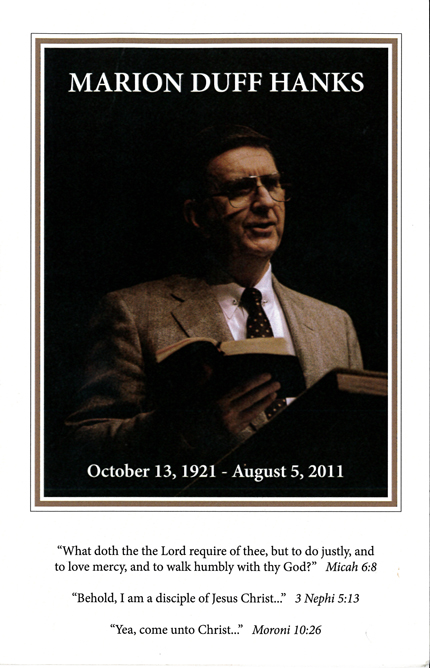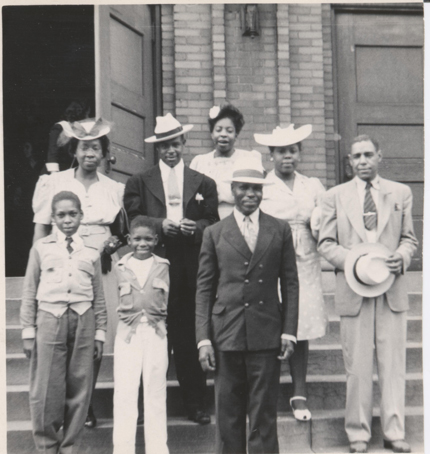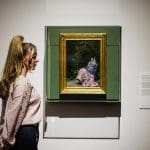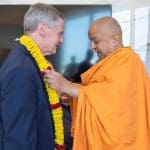 Perhaps Nancy Hanks Baird, daughter of Elder Marion Duff Hanks, gave the quintessential summary of her father’s life at his funeral: “He helped us learn more about Jesus Christ.”
Perhaps Nancy Hanks Baird, daughter of Elder Marion Duff Hanks, gave the quintessential summary of her father’s life at his funeral: “He helped us learn more about Jesus Christ.”
For any of us who knew him, this salvific help came from his personal devotion to the Savior, and from his love of the scriptures—particularly the Book of Mormon. Nancy said that her father knew there was “an ocean of light under the scriptures.”
Two of the missionaries who served under Elder Hanks when he presided over the Great Britain mission also testified that he opened the scriptures to them. Both of these men were listed on the program as “Apostle, Missionary.” They were Elders Quentin L. Cook and Jeffrey R. Holland.
Elder Holland, in his talk, recounted a conversation he had had with his former mission president, who told him about his early years as a General Authority. When Elder Hanks was called to The First Council of the Seventy (so-termed at the time) at age thirty-one, he felt overwhelmed. Not long after, he was asked to attend a large meeting in the tabernacle. He attended, but avoided sitting in a prominent place. He was seriously considering declining the call. Finally, the audience arose to sing the closing hymn, “I Stand All Amazed.” Elder Hanks wept as he heard the last verse:
“I marvel that He should descend from His throne divine
To rescue a soul so rebellious and proud as mine.”
The new General Authority was hit so hard by the lyrics that “he thought his knees would buckle.” He knew that he would be given the power to accomplish all that was being asked of him. Elder Holland quoted his mentor saying, “[Christ] did that once on Calvary, and did it again for me in the tabernacle.”
True to his faith and to his Lord, Elder Hanks served honorably in his calling for forty years, becoming an emeritus General Authority in 1992. He was a spiritual mentor for many, including me.
President Thomas S. Monson was the concluding speaker at the funeral, and said of Marion Duff Hanks: “He was a man of God, and there was no guile in his soul.”
The image from the funeral which stayed with me most profoundly was one presented by Susan Hanks Maughan, a daughter. She reported that her father always carried a rope in the trunk of his car, in case anyone on the road needed towing. This is the image I discussed with my son, who reminded me of a conversation we had had with Elder Hanks years ago. My husband, Bruce, had asked what should be improved in the Church. Elder Hanks responded quickly: “More service.”
He was not only willing to help, he prepared himself for the opportunity. He stood up for the downtrodden and helped pull troubled souls from various mires, using physical ropes or spiritual ones—often including redemptive lines of poetry in his talks, and always including the ultimate rescue tool : his testimony of Jesus Christ. He was a servant of God until the end, seeking to soothe the afflicted and liberate any who had gotten stuck, whether in a muddy ditch, in the muddle of their own wildly mapped egos, or in the tangle of deceit.
Richard Hanks reported that when his father understood what was happening to him in those last years, and how dense the fog would become before his death, they knelt together at the bedside. Elder Hanks prayed, “Grant unto me peace in this situation, and let me find someone else to help.”
I was one who benefitted from his spiritual help, even when he couldn’t quite identify me. My children also loved him, though they never knew him as the powerhouse General Authority Bruce and I remembered. And so, three Christmases ago, Bruce bought some DVDs of devotionals Elder Hanks had given in his prime, so that our children might hear his voice from before it became uncertain, and become familiar with the mind and soul of this man they instinctively loved.
I got to know Elder Hanks after he became an emeritus General Authority. His reputation as one who had consistently spoken on behalf of African Americans during the years of the priesthood restriction, and his history with a remarkable black family (that of Len and Mary Hope), made him a essential interview subject when Darius Gray and I were working on our trilogy of books about Black LDS pioneers, and ultimately on the documentary, Nobody Knows: The Untold Story of Black Mormons.
I wrote to Elder Hanks in 2001, and he returned a hand-written note, inviting Darius and me to meet with him in his condominium. That was the first of many meetings we had, most during 2002 and 2003. He was lucid and generous. He gave us books, thoughts, and a cassette tape of Len Hope telling his own conversion story. Elder Hanks had recorded it in 1947. (That tape recording is now included in special features of our documentary.)
He told us of visiting the Hope family with other missionaries just before WWII. The Hopes had not found welcome in their Cincinnati branch during those racist years, and were asked to stop attending. Len’s response was simply, “Can we still pay our tithing?”

Once every three months, the Hopes would go to their branch to pay their offerings. For the other months, missionaries would go to the Hopes’ home to serve them the sacrament and sing hymns. Elder Marion Duff Hanks was one of those missionaries.
He became ill during a Sunday visit, and Mary Hope insisted he remain after the others had departed, so she could care for him. He stayed with the Hopes for two days, and she applied compresses to his forehead and gave him medicine for his sore throat. Elder Hanks told us, “I never even thought of the color of her hand.”
During those sick days, Elder Hanks couldn’t speak loudly, but whispered to Len Hope: “I don’t know anyone in this world better than you are. I know you’d give anything to hold the priesthood. There are some things I don’t understand. I guess we both go on faith.”
Len’s response moved Elder Hanks decades later: “I may not have priesthood, but I have the restored gospel, and that is a rich bounty. Priesthood will come. I don’t know when, but I believe it will come in God’s time.”

When Elder Hanks was well and being picked up by his district leader, he walked down the steps of the Hopes’ home, which were dusted with snow. Mary Hope wanted to sweep the steps after the missionary’s departure, but her husband asked her not to. “Don’t you know what the Bible says?” Len asked. “How beautiful are the feet of those who preach the gospel of peace! Leave that missionary’s footprints there.”
Elder Holland claimed that every missionary who served under President Hanks could recite these verses from William Watson:
‘Tis human fortune’s happiest height to be
A spirit melodious, lucid, poised, and whole;
Second in order of felicity
I hold it, to have walk’d with such a soul.
As did Elder Holland, I thank God that I have walked with such a soul as Marion Duff Hanks.
His footprints remain blessed and beautiful in my life.

















